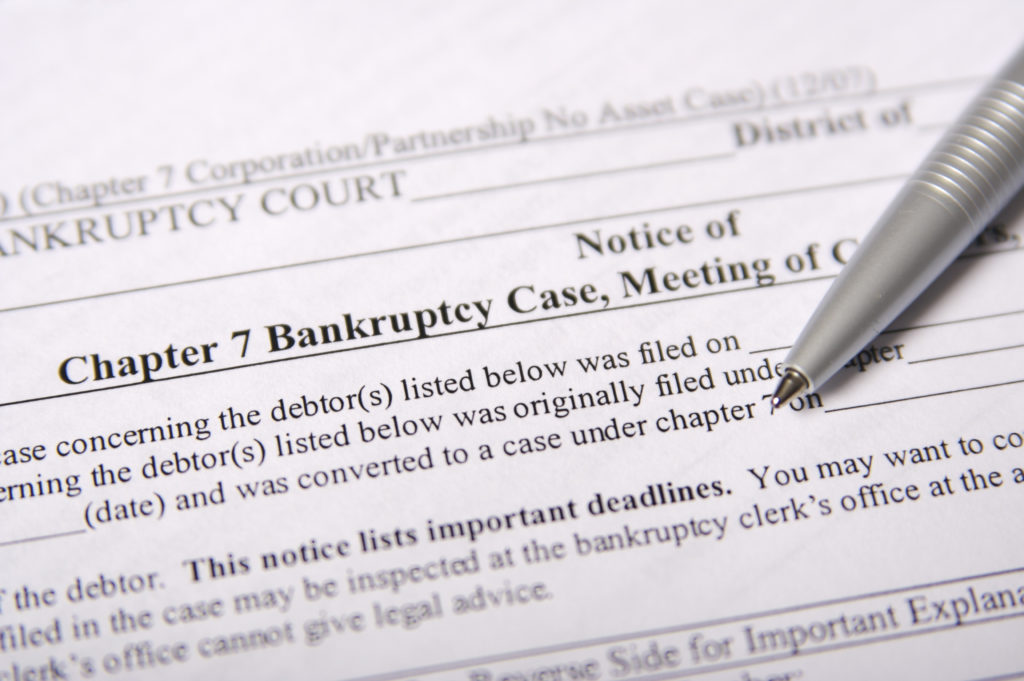
Dealing with bankruptcy is never easy. The emotional burden of the financial struggle is tough enough, but the process of actually filing for bankruptcy can be confusing and overwhelming. One critical mistake in the process and all your efforts will go to waste.
Because of the intricacies of the bankruptcy process, you must know what to do and what not to do before you file. To make things easier, we’ve compiled a comprehensive checklist of everything you need to know before filing for Chapter 7 bankruptcy.
Understanding Chapter 7 Bankruptcy
The specific legal details of Chapter 7 Bankruptcy are written under Federal Code. Chapter 7 Bankruptcy is unique because it is the only form of bankruptcy that eliminates certain debts by liquidating your non-exempt assets, giving it the name ‘liquidation bankruptcy.’
In the process, a trustee will be appointed to oversee your case and sell off any property that is non-exempt to pay back your creditors. This is a quick solution to ease your debt burden and get a fresh start, but you risk losing most of your property.
Qualifying for this type of bankruptcy is not easy. You will have to take a ‘means test’ that weighs your income and debts to see if Chapter 7 is the best form of bankruptcy for you or if you should pursue another debt-relief avenue. If the court determines that you have the financial capacity to pay back your creditors, they will allow you to pursue a Chapter 13 Bankruptcy or a ‘repayment bankruptcy.’
What You Need To Prepare When Filing for a Chapter 7 Bankruptcy
Now that you understand a bit more about Chapter 7 Bankruptcy, it’s time to start preparing for your filing. Trust us, the more prepared you are, the smoother the process will be.
The Official Bankruptcy Forms
Completing the official bankruptcy forms is critical when you’re planning to file for Chapter 7 bankruptcy. Download these documents, they should be on the top of your list of priorities. One of the most vital pieces of paperwork to file is the statement of financial affairs.
Local Bankruptcy Forms
Depending on where you live, the local bankruptcy court may require additional forms on top of the federal-mandated bankruptcy forms. These local forms are usually available on the state government’s official website.
Credit Report
Your credit report will outline all your debts, and you will need to provide a copy of it when you file for bankruptcy. This document is critical when proving your debts and your inability to pay them back. You can get a copy of your credit report from any of the three major credit bureaus: Experian, TransUnion, and Equifax, by requesting a copy from their websites.
Credit Counseling Certificate
Before filing for bankruptcy, you must complete a credit counseling session with an approved provider. This is a mandatory step in the process, and you will need to provide a certificate of completion when you file your case. You can find a list of approved providers on the U.S. Trustee Program’s website.
Taxes and Properties
Another critical document you need to add to your checklist is a list of all your tax returns from the past two years. This will help the court determine if you qualify for Chapter 7 bankruptcy.
You should also include a list of your recent bank statements, current monthly income, and all your property, both exempt and non-exempt. This will give the trustee an idea of what assets are available to liquidate and pay off your creditors.
Divorce Decree or Child Support Document
If you’re going through a divorce or have child support obligations, you’ll need to provide relevant documentation when you file for bankruptcy. These documents will help the court determine your disposable income, which is the amount of money you have left after paying your mandatory expenses.
An Experienced Chapter 7 Bankruptcy Attorney
The entire Chapter 7 bankruptcy process can be overwhelming and confusing, but luckily, you don’t have to go through it alone. You can always seek the help of a Chapter 7 bankruptcy lawyer to guide you through every step of the bankruptcy filing process and ensure everything is done correctly.
Get the Legal Help You Need
Filing for Chapter 7 bankruptcy can be daunting, but the process will be much smoother if you’re prepared and have all the necessary documents at your disposal. But, it’s worth mentioning that bankruptcy is an intricate process, and having the help of an experienced bankruptcy attorney can be invaluable.
An experienced attorney who prioritizes your attorney-client relationship and knows how to handle sensitive or confidential information is key to a successful outcome.
Make sure to check this list before you file bankruptcy papers to avoid any delays or complications in your case, and contact us today for help.
